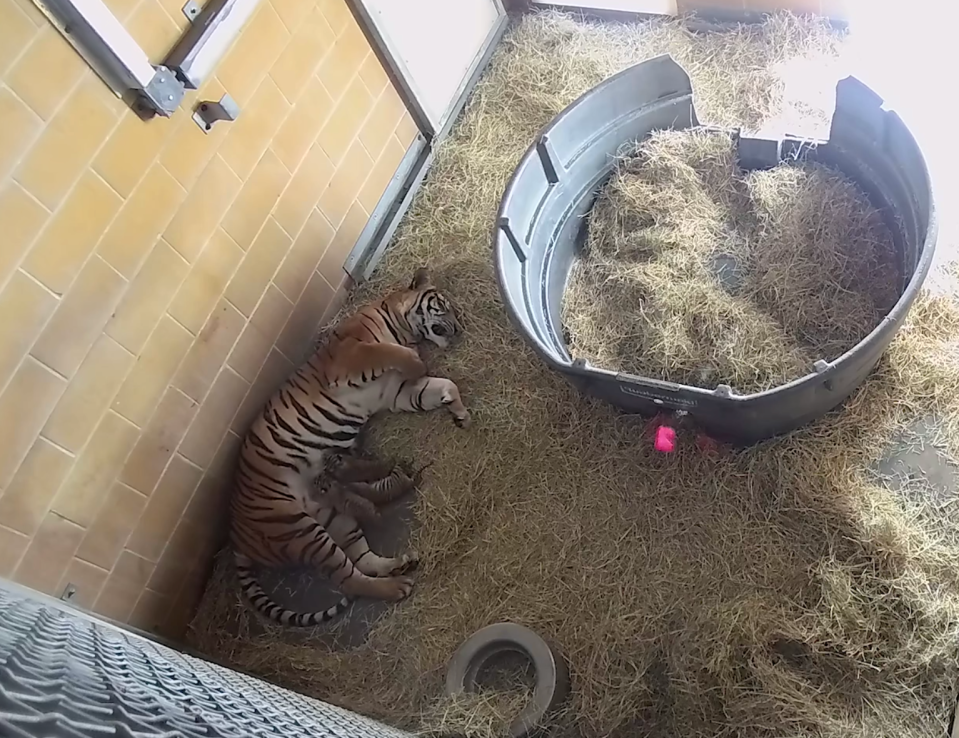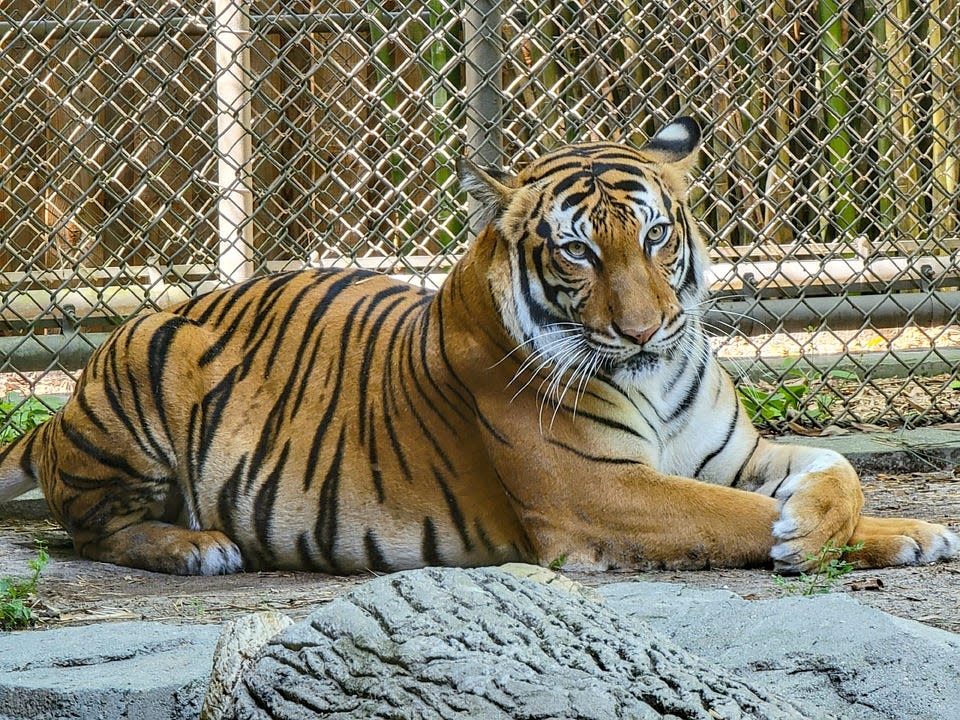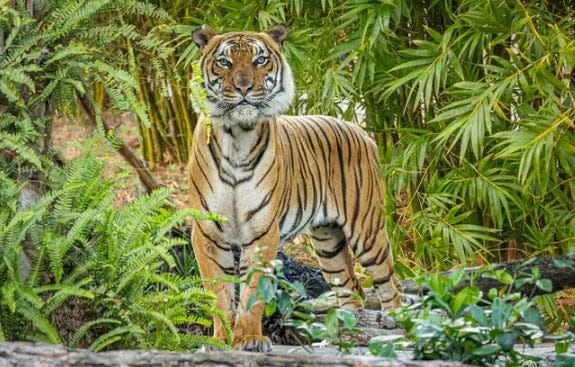Newborn at the Jacksonville Zoo: Critically endangered Malayan tiger triplets
Critically endangered Malayan tiger triplets born recently at the Jacksonville Zoo and Gardens are a little wobbly on their paws but nonetheless offer a glimmer of hope for their species bordering on extinction in the wild.
The tiny trio appear to be doing well under the care of their doting mom, Cinta, said zoo officials who posted a video of the tiger family on social media in announcing the birth of the cubs.
"We are giving the cubs and mother space as they get settled in, so we will not know the weights or sexes for some weeks," said Emily Long, zoo marketing director.
"Likewise, we are unsure of an official date that they will be on exhibit, as they have to grow big and strong enough in order to be out," Long also said.
Jacksonville Zoo and Gardens now is home to a total of five Malayan tigers: the three cubs along with parents Cinta and Bashir.

The cubs born Nov. 5 are the newest additions to the zoo at 370 Zoo Parkway in North Jacksonville, which is experiencing a baby boom this year.
Zoo baby boom
On April 7 rambunctious Banks became the first jaguar cub born at the zoo in nearly 10 years, joining first-time parents Babette, 6, and Harry, 14.
A quartet of Magellanic penguin chicks hatched one at a time over six days in May. Their arrival marked the largest number of hatchings in a single season since the opening of the zoo's Tuxedo Coast habitat in 2010.
Kimani, a critically endangered female Eastern Bongo calf, was born June 25 to 5-year-old parents Shimba and Mickey.
Malayan tiger survival
The tiger cubs are Cinta's second litter but her first at the Jacksonville Zoo. The 10-year-old female Malayan came to Jacksonville from the Cincinnati Zoo in 2017.
"Cinta has been very attentive to her babies, grooming and allowing the cubs to nurse," so the staff is letting them "bond privately behind the scenes," zoo officials said in the birth announcement. "Our animal care staff continue to monitor them to ensure they are eating, sleeping and cuddling as they should."

Bashir, 14, is a first-time dad. He may be a proud papa, but male tigers aren't involved in cub-rearing.
He arrived at the Jacksonville Zoo in early April 2022 as part of the Species Survival Plan, a group of professionals within the Association of Zoos and Aquariums that make recommendations to ensure a healthy, genetically diverse and demographically varied population.
The survival plan pairs members of the same endangered species at accredited zoos based on the genetics of captive populations in a planned breeding program.

Tigers play a critical role in their natural habitat by balancing and maintaining a thriving ecosystem, zoo officials said.
But the big cats are in trouble. Wildlife authorities estimate there are fewer than 150 individual Malayan tigers left in the wild.
Jacksonville Zoo deemed among the best: Jacksonville Zoo named one of Top 25 zoos in the U.S.
Habitat loss due to development, agriculture expansion, and hunting has taken a toll on the species. In the 1950s, authorities estimated Malaysia had up to 3,000 tigers but the population has dropped steadily since then, according to World Wide Fund for Nature, formerly known as World Wildlife Fund.
Animal care specialists and veterinary staff at the zoo are keeping close tabs on Cinta and the cubs including using video cameras to help monitor that all is well with them.
Zoo officials said they plan to release regular updates on the tiger family.
This article originally appeared on Florida Times-Union: Jacksonville zoo welcomes critically endangered Malayan tiger cubs

